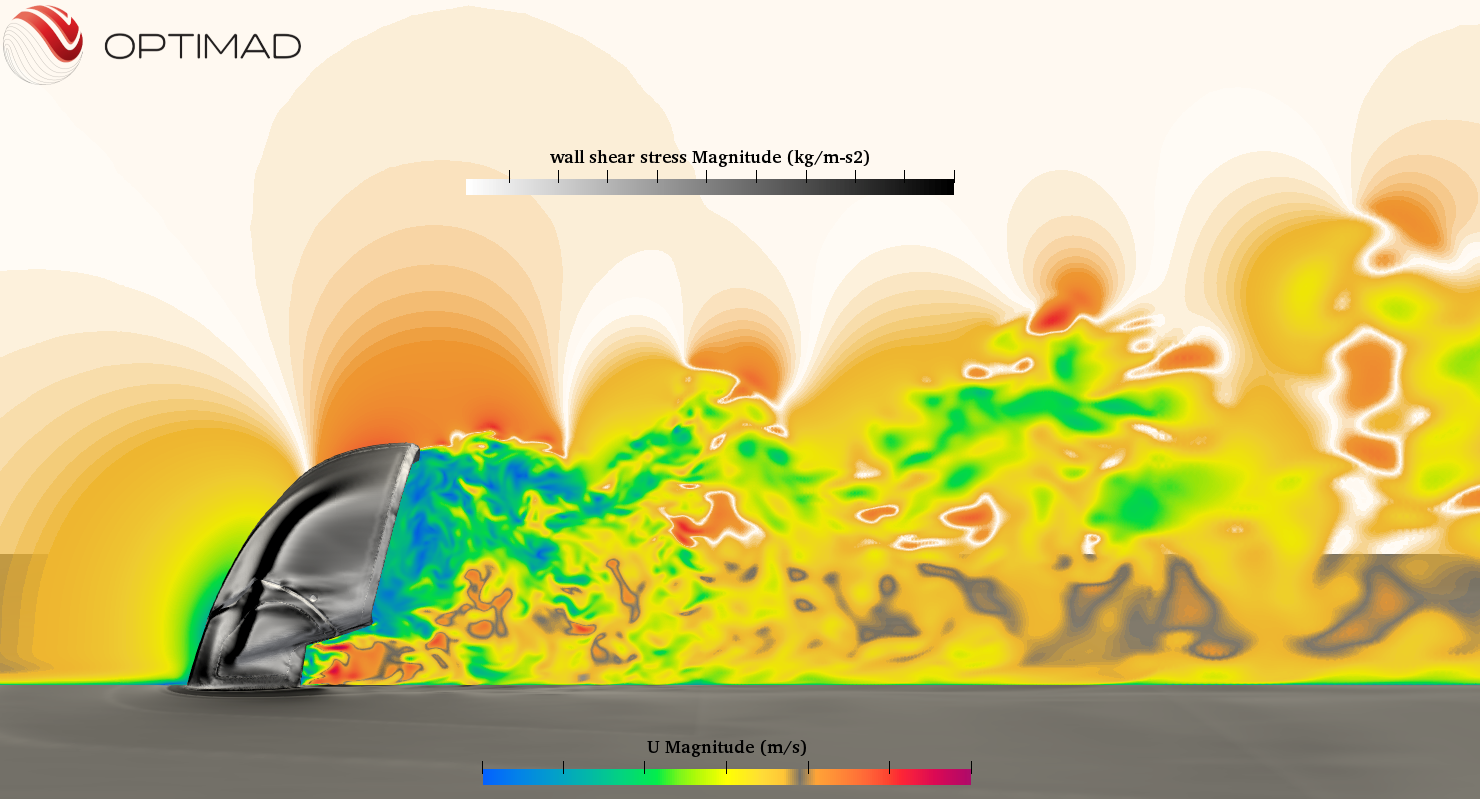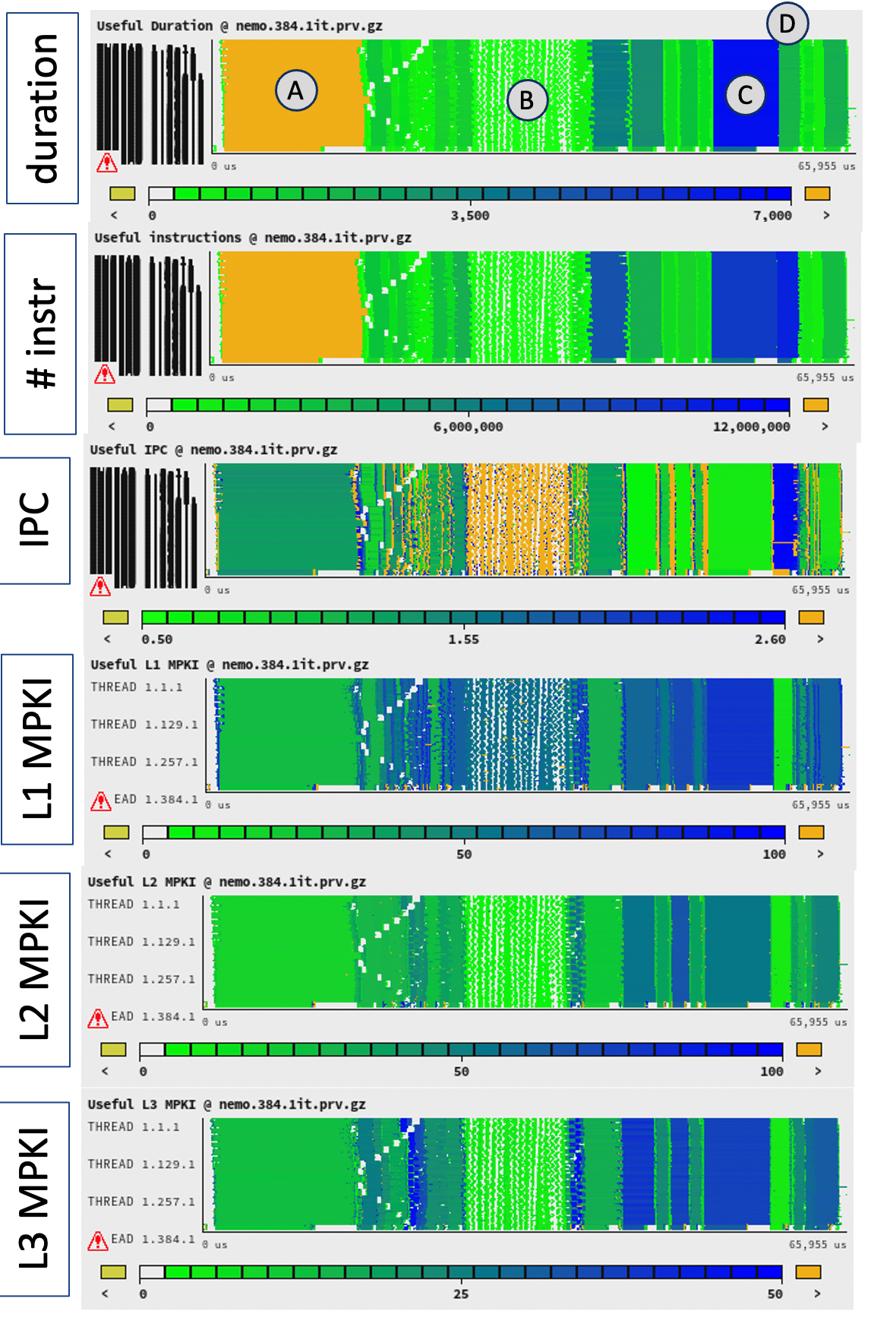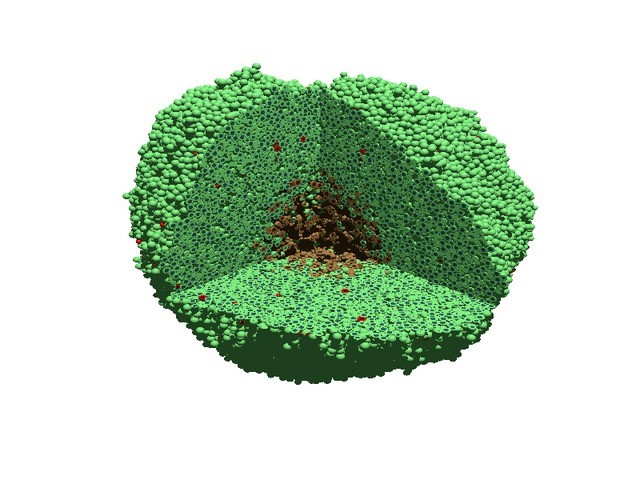Welcome to the 20th newsletter from the EU POP Centre of Excellence.
In this edition, we are pleased to announce the extension to the POP service with our new animation. We would like to invite you to our upcoming SME-focussed webinar and to catch up on the recent one on Paraver. You can read about some of our success stories in our technical blogs and find out what we’ve been doing in our recent events. Do check out our new training modules on Paraver too. As always, we will tell you where you can meet POP staff.
If you would like to contribute technical content for this newsletter on the topic of parallel performance profiling, please contact us at pop@bsc.es.
This issue includes:
- POP Service Extended
- Watch the new POP animation
- POP Webinars
- POP: The SME Perspective
- Introduction to Paraver
- Technical Blogs
- 1.45x Speedup for PhysiCell, one of PerMedCoE’s Core Applications
- 2x Speed-up on Biggest Runs for Parallel Mesh Adaptation Code
- Runtime almost halved for Population Genomics Code
- Recent POP Events
- 6th POP2 Project Meeting
- POP Experts Contributed to ISC HPC 2021 Tutorial Program
- First Workshop on Performance Engineering, Modelling, Analysis and Visualization Strategy (PERMAVOST 2021)
- PASC'21 mini-symposium
- Monthly Performance Analysis Workshop Series Successfully Concluded
- Supercomputing Frontiers Europe 2021
- Performance Tuning Workshop
- SC21 Tutorial
- POP Online Training
- New Training Modules on using Paraver
- POP Out and About
- The NAFEMS World Congress
- Supercomputing 2021
- The POP Helpdesk
For past editions of the newsletter, see the POP newsletter web page.
POP Service Extended
Yes, that’s right! The POP service has been extended by six months to run until the end of May 2022, giving you even longer to take advantage of our services. If you need a reminder and have a spare 30 seconds, then take a look at our new animation. See if you can spot the five famous European landmarks that our POP superheroes fly over (clue: there’s one from each country where one or more POP partners are based). Answers will be given in the next newsletter!
POP Webinars
POP: The SME Perspective
17 September 2021, 15:00 CEST / 14:00 BST | online
 While we welcome many customers from large industry and academia, we are particularly interested in offering our services to SMEs. In this thirty-minute live webinar, you will hear from three speakers from SMEs who have worked, or are currently working, with POP. They will describe the business they are in, the importance of HPC to it and what they have gained from their relationship with the POP service. The discussion will then be opened up to cover various aspects of HPC support for SMEs. Attendees will have the opportunity to submit questions to the speakers.
While we welcome many customers from large industry and academia, we are particularly interested in offering our services to SMEs. In this thirty-minute live webinar, you will hear from three speakers from SMEs who have worked, or are currently working, with POP. They will describe the business they are in, the importance of HPC to it and what they have gained from their relationship with the POP service. The discussion will then be opened up to cover various aspects of HPC support for SMEs. Attendees will have the opportunity to submit questions to the speakers.
For further information and booking, please click here.
Introduction to Paraver
 In July, Professor Jesús Labarta of BSC gave an excellent introductory talk on Paraver, a browser to process and visualize traces, capturing the behaviour of parallel programs. Paraver is at the core of the BSC tools framework and allows very detailed qualitative and quantitative analysis of traces. It has a flexible programmable interface that lets the analyst tailor it and squeeze the information within the data. This 30-minute webinar described the fundamentals behind Paraver, explaining how to navigate and interpret the displays as well as how to derive new views to pinpoint specific effects and use them in cooperative analyses. The recording, slides and handouts can all be found here.
In July, Professor Jesús Labarta of BSC gave an excellent introductory talk on Paraver, a browser to process and visualize traces, capturing the behaviour of parallel programs. Paraver is at the core of the BSC tools framework and allows very detailed qualitative and quantitative analysis of traces. It has a flexible programmable interface that lets the analyst tailor it and squeeze the information within the data. This 30-minute webinar described the fundamentals behind Paraver, explaining how to navigate and interpret the displays as well as how to derive new views to pinpoint specific effects and use them in cooperative analyses. The recording, slides and handouts can all be found here.
Browse the list and catch up on all our previous webinars here.
Technical Blogs
POP Collaboration with PerMedCoE achieves a 1.45x Speedup in PhysiCell, one of PerMedCoE’s Core Applications
 PhysiCell is an open source, agent-based modelling framework for 3D multicellular simulations, widely used in tissue and cancer biology to simulate the effect of genetic and environmental perturbations in cancer progression. The application is written in C++ and parallelized with OpenMP. The analyst’s detailed performance analysis led them to inspect a region of code where they discovered an unusually high density of memory allocations and deallocations due to the overloading of standard operators. To find out the full story and how the performance was improved, take a look here.
PhysiCell is an open source, agent-based modelling framework for 3D multicellular simulations, widely used in tissue and cancer biology to simulate the effect of genetic and environmental perturbations in cancer progression. The application is written in C++ and parallelized with OpenMP. The analyst’s detailed performance analysis led them to inspect a region of code where they discovered an unusually high density of memory allocations and deallocations due to the overloading of standard operators. To find out the full story and how the performance was improved, take a look here.
Proof-of-concept achieves a 2x Speed-up on Biggest Runs for Parallel Mesh Adaptation Code
This work, including three kinds of POP services (Performance Assessment, Follow-up, and Proof-of-concept), shows how we improved the performance of a production HPC application, addressing its load imbalance and instruction scalability and allowing it to run 2x faster. Read the blog post for the full story.
Runtime almost halved for Population Genomics Code
A recent POP performance assessment investigated the performance of BayPass, a Fortran population genomics code parallelised with OpenMP. A detailed analysis of the different stages of the computation was undertaken by the POP team for both the Intel and GCC Fortran compilers. This revealed significant issues with IPC (instructions per cycle) scaling, which were impacting the overall performance.
After implementing POP’s suggestions on how to alleviate this issue, the performance of BayPass was significantly improved. Dr Mathieu Gautier, the code developer said, "I am already able to see that the performance has been clearly and very highly improved. In some instances, the computation time is almost halved!"
For the full story, click here.
Recent POP Events
6th POP2 Project Meeting
On June 2nd and 3rd, 2021 the partners of the POP CoE (Second Phase) held a (virtual) face-to-face project meeting. Find out more here.
POP Experts Contributed to ISC HPC 2021 Tutorial Program
Experts from the POP CoE contributed heavily to the tutorial program of the ISC High Performance 2021 conference, which was held virtually. Details of all the tutorials we were involved in can be found here.
First Workshop on Performance Engineering, Modelling, Analysis and Visualization Strategy (PERMAVOST 2021)
On June 25th 2021, POP partners RWTH Aachen and BSC, together with the University of Arizona and the Federal University of Rio Grande do Sul, organized a virtual workshop, PERMAVOST. This workshop was created to foster collaborations with stakeholders in performance research, analysis and engineering ecosystems. Catch up with the event, including a recording and the proceedings, here.
PASC'21 mini-symposium organised by POP
The 2021 edition of the Platform for Advanced Scientific Computing (PASC) conference was held from the 5th to the 9th of July as a virtual digital event. It featured 45 distinct mini-symposia, several comprising multiple parts, including some carried over from the cancelled 2020 incarnation.
POP organised a two-part mini-symposium "Performance Optimisation and Productivity for EU HPC Centres of Excellence (and other European parallel application developers preparing for exascale)", where sectorial HPC Centres of Excellence were invited to report on their experience collaborating with POP and using POP services as part of preparing their flagship application codes for forthcoming exascale computer systems. See the blog for full details and recordings.
Monthly Performance Analysis Workshop Series Successfully Concluded
From January through to July 2021, members of POP contributed to a series of seven workshops on application performance analysis and optimisation organised for the UK's ExCALIBUR programme by Durham University, the DiRAC consortium and N8 CIR. The series addressed inter-node, intra-node and core-level runtime efficiency as well as correctness of MPI and OpenMP/multi-threaded application codes, featuring invited presentations on a variety of tools from JSC, RWTH Aachen and UVSQ, plus others.
For full details, including links to recordings of the presentations and the slides, click here.
Supercomputing Frontiers Europe 2021
The recording of the talk “Meet the POP CoE: Getting insight into HPC code behaviour”, given at this year’s Supercomputing Frontiers Europe conference, can be found here. A selection of talks and interviews from the conference are available at this site.
Performance Tuning Workshop
SC21 Tutorial: “Hands-on Practical Hybrid Parallel Application Performance Engineering”
14 November, 2021
This tutorial presents state-of-the-art performance tools for leading-edge HPC systems founded on the community-developed Score-P instrumentation and measurement infrastructure, demonstrating how they can be used for performance engineering of effective scientific applications based on standard MPI, OpenMP, hybrid combination of both, and increasingly common usage of accelerators. Full details on the SC21 website.
POP Online Training
We have previously introduced our online training modules, a series of short training videos on topics related to performance optimisation and our methodology. We have now added a set of modules on using Paraver. These four introductory videos cover the following topics:
- Introduction
- Timelines
- Tables
- Semantic Functions
All presentation slides and the traces and config files used in the demos are provided.
POP Out and About
The NAFEMS World Congress | 25 – 29 October 2021 | Salzburg, Austria and online
The NAFEMS World Congress runs every two years, gathering together the international engineering modelling, analysis and simulation community. POP will be sharing a booth this year with fellow CoE, Excellerat, the European Centre of Excellence for Engineering Applications. We will also be giving the talk, “Improving the Performance of Engineering Codes” on the 26th of October.
Supercomputing 2021 | 14 – 19 November 2021 | St Louis, MO, USA and online
Supercomputing is the international conference for High Performance Computing, Networking, Storage and Analysis. As well as the tutorial mentioned earlier, many of the POP partners will be present and available to talk about POP. For more information on the conference, please click here.
If you feel that POP should be attending an event, please contact us at pop@bsc.es - suggestions are most welcome!
Apply For Free Help with Code Optimisation
We offer a range of free services designed to help EU/UK organisations improve the performance of parallel software. If you are not getting the performance you need from parallel software or would like to review the performance of a parallel code, please apply for help via the short Service Request Form, or email us to discuss the service further and how it can be beneficial.
These services are funded by the European Union Horizon 2020 research and innovation programme so there is no direct cost to our users.
The POP Helpdesk
Past and present POP users are eligible to use our email helpdesk. Please contact our team of experts for help analysing code changes, to discuss your next steps and to ask questions about your parallel performance optimisation.

